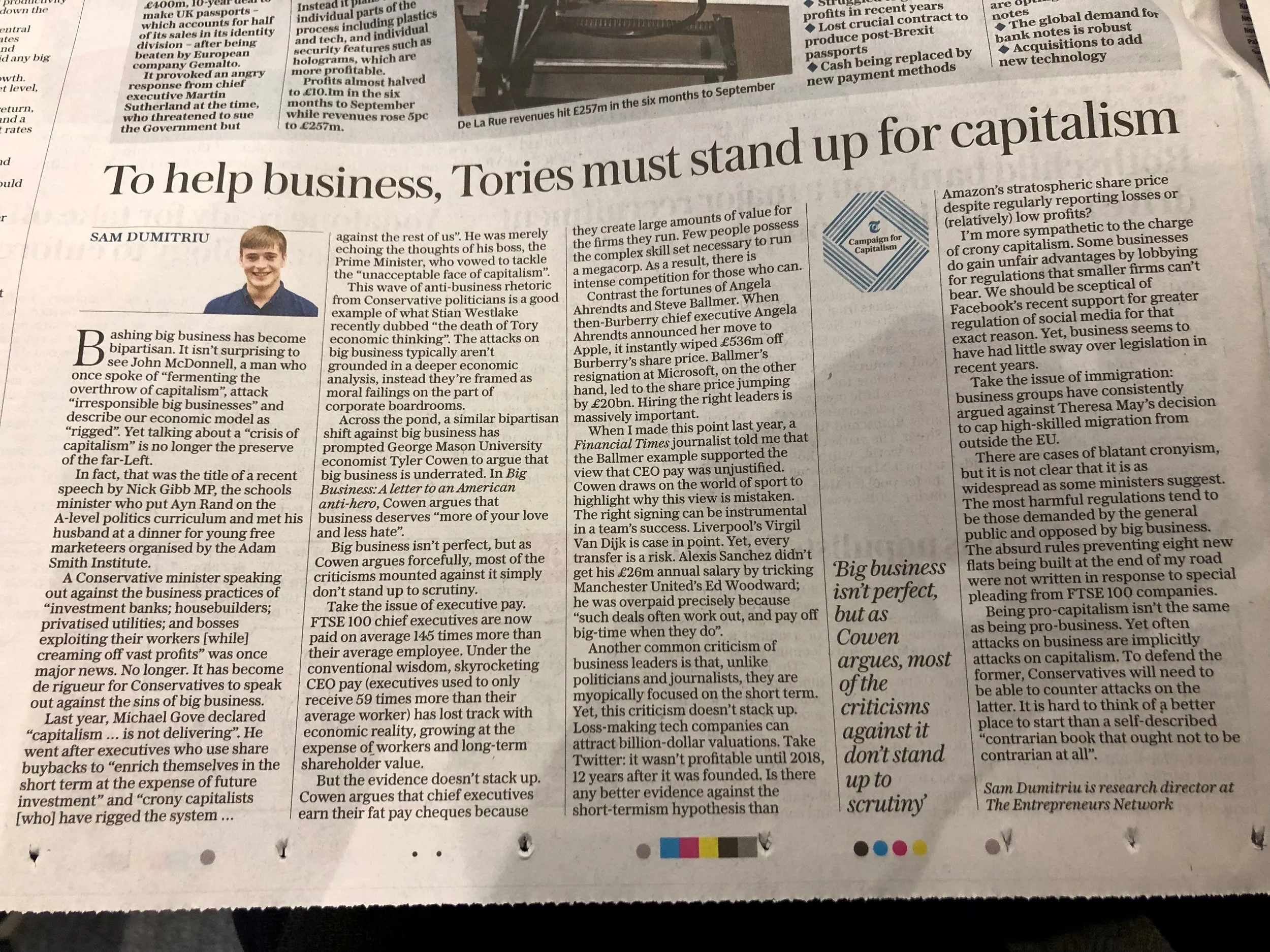I’m in today’s Daily Telegraph recommending Tyler Cowen’s new book, a contrarian defence of Big Business, to Conservative MPs who’ve recently taken a more negative line towards business.
Here’s a snippet:
Another common criticism of business leaders is that, unlike politicians and journalists, they are myopically focused on the short term. Yet, this criticism doesn’t stack up. Loss-making tech companies can attract billion dollar valuations. Take Twitter: it wasn’t profitable until 2018, 12 years after it was founded. Is there any better evidence against the short-termism hypothesis than Amazon’s stratospheric share price despite regularly reporting losses or (relatively) low profits?
I’m more sympathetic to the charge of crony capitalism. Some businesses do gain unfair advantages by lobbying for regulations that smaller firms can’t bear. We should be sceptical of Facebook’s recent support for greater regulation of social media for that exact reason. Yet, business seems to have had little sway over legislation in recent years. Take the issue of immigration: business groups have consistently argued against Theresa May’s decision to cap high-skilled migration from outside the EU.
There are cases of blatant cronyism, but it’s not clear that it’s as widespread as some ministers suggest. The most harmful regulations tend to be those demanded by the general public and opposed by big business. The absurd rules preventing 8 new flats being built at the end of my road were not written in response to special pleading from FTSE 100 companies.

